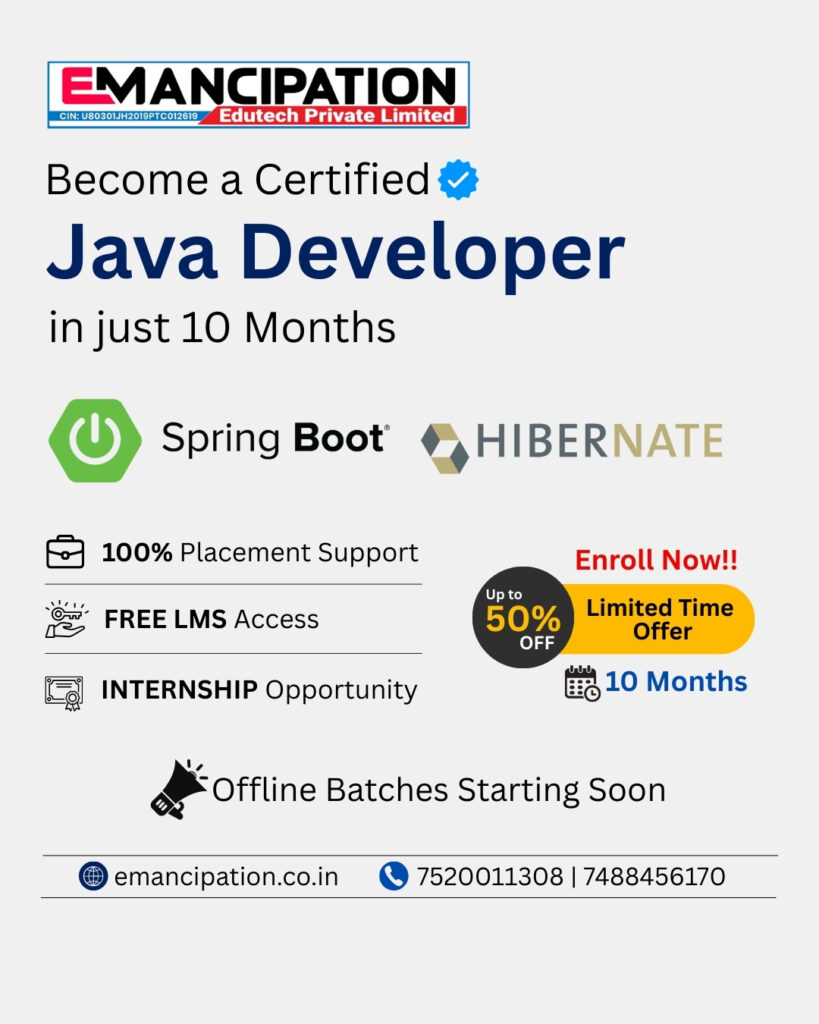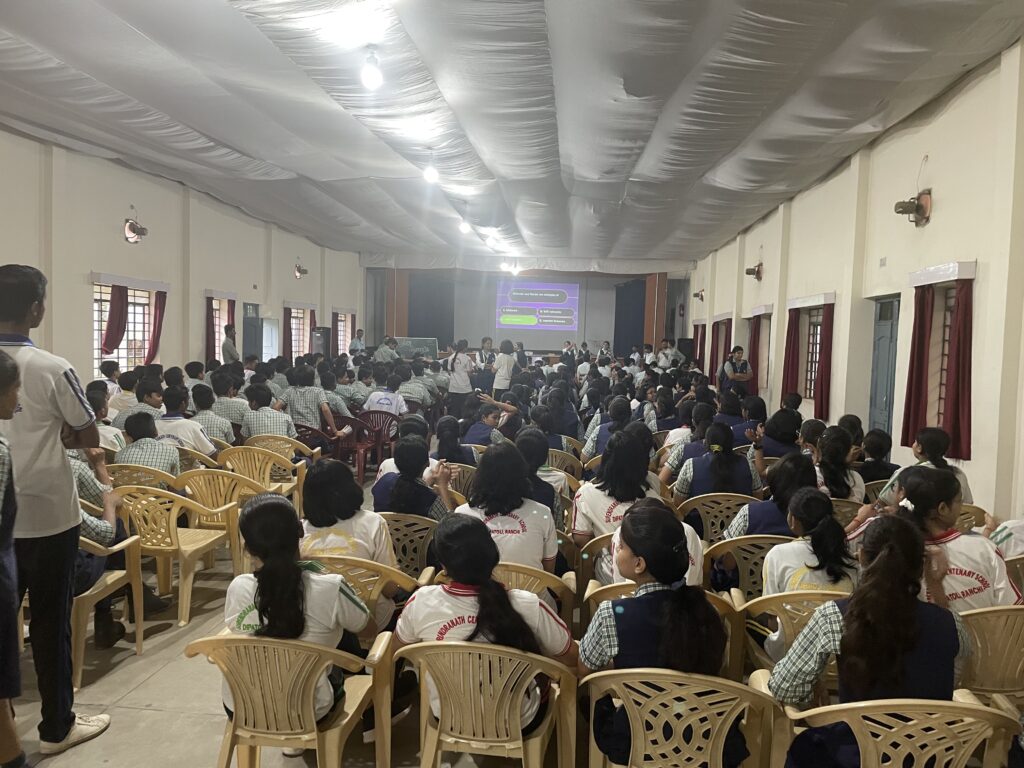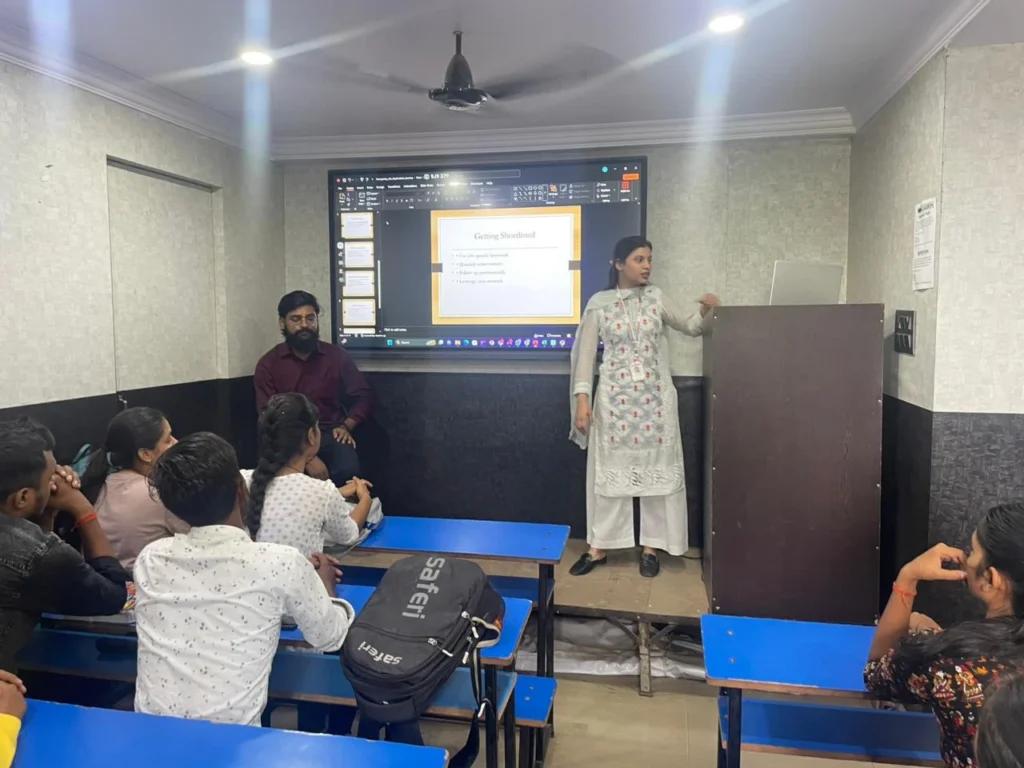Java for Beginners – Why Java Still Dominates the Programming World in 2025
Java for beginners Java continues to be one of the most trusted, scalable, and future-proof programming languages in the world. Even in 2025, companies across industries—finance, e-commerce, healthcare, education, telecom, and enterprise software—rely heavily on Java for building stable, secure, and high-performance applications. For beginners who want a stable career in software development, Java for beginners remains one of the strongest pathways to enter the IT job market. Java’s biggest advantage is its platform independence. The principle “Write Once, Run Anywhere” allows developers to build software that runs seamlessly on all major operating systems. This makes Java the language of choice for developing enterprise applications and backend systems for large businesses. When a company wants reliability and long-term security, they choose Java. Java also remains highly relevant because of its massive ecosystem. Frameworks such as Spring Boot, Hibernate, Jakarta EE, and Maven make it easier to build enterprise-grade applications efficiently. Spring Boot, in particular, plays a crucial role in modern backend development as it helps build scalable microservices used by companies like Netflix, Amazon, and Uber. For beginners, Java is a perfect starting point because it teaches strong programming logic. Its strict syntax helps students build discipline, which later makes it easier to learn languages like Python, JavaScript, C#, or Kotlin. A student who starts with Java develops a deep understanding of object-oriented programming (OOP)—one of the most important concepts in modern software development. The demand for Java developers is not slowing down. In 2025, the IT industry continues hiring Java professionals for backend development, cloud applications, Android app development using Kotlin/Java, and enterprise software. With the rapid adoption of cloud platforms like AWS, Azure, and Google Cloud, Java becomes even more critical because it is one of the most optimized languages for cloud-native development. Another reason students choose Java is its job security. Since Java is used by banks, insurance companies, and government systems, Java-based applications last for decades. These companies always need Java developers to maintain, upgrade, and improve existing systems. This ensures long-term career stability. Beginners can start learning Java with simple programs like conditionals, loops, constructors, arrays, and classes. Once comfortable, advancing to OOP concepts like inheritance, polymorphism, and encapsulation builds strong foundations. After mastering core Java, moving to advanced Java topics like JDBC, Servlets, JSP, and Spring Boot opens doors to high-paying backend developer roles. In India, Java developers earn an average salary of ₹4.5–12 LPA at the starting level. With 3–5 years of experience, this increases to ₹15–25 LPA in top companies. Java also provides global opportunities, making it one of the most reliable skills for students who want international placements. In conclusion, Java for beginners remains one of the most relevant career pathways in 2025. With its strong ecosystem, job security, enterprise demand, and cloud compatibility, Java continues to dominate the software world. Whether you are a student in college or a working professional switching careers, Java is the perfect starting point for a stable and rewarding IT future.
Java for Beginners – Why Java Still Dominates the Programming World in 2025 Read More »








